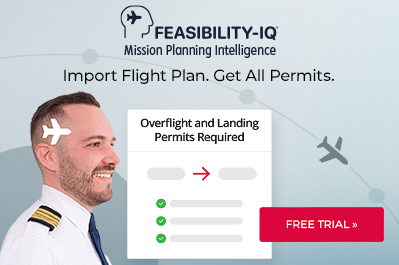Operating to Koror (PTRO) – Part 2 of 2: CIQ, Slots & Permits

This business aviation blog post continues from our article last week, entitled “Operating to Koror (PTRO) – Part 1 – Top Considerations.”
Airport slots, and securing hotel accommodations are among the larger challenges when planning general aviation (GA) operations to Koror (PTRO). It’s recommended that a 3rd-party provider assist with arranging landing permits, airport slots, aircraft parking and ground handling as issues can, and do, come up when operators try to arrange all of this on their own.
The following is an overview of what you need to know:
1. Airport slots
Airport slots are required for all private non-revenue and charter (non-scheduled commercial) operations to/from PTRO and are tied to thelanding permit and airport parking. Note that your PTRO landing permit will only be approved after you’ve obtained approvals for both airport slots and parking. Be aware that airport authorities expect operators to follow approved airport slot times as any delay can impact the next operator. Only one aircraft may arrive or depart per each 30 minute period so it’s important to operate per the schedule approved by airport authorities.
2. Landing permit requirements
Landing permits are needed for all operations, and tech stops, to PTRO and the official permit lead time is five business days. The Civil Aviation Authority (CAA) may process shorter notice requests in less than official lead time, at their discretion, but it’s best to provide a minimum of three business days lead time for week day operations. Emergency and air ambulance flights are allowed special consideration in terms of short notice approvals. CAA is open, to process permits, Monday-Friday 0900-1400 local but closed on weekends and holidays. Landing permit validity is +72 hours and schedule changes to approved permits, outside the validity window, should be submitted a minimum of five business days prior to arrival. Note that revised permit requests will only be approved after airport slots and parking are re-approved. The permit number remains the same for revisions. It’s recommended to note your permit number in Remarks Section 18 of your flight plan but this is not required.
3. Arrival requirements
Palau requires visas for stays of up to 30 days. These are processed and paid for on arrival for all nationalities except citizens of Bangladesh and Myanmar. For those passport holders, visas must be arranged prior to arrival. Upon landing crews must present a passenger manifest, a stamped general declaration and an empty bottle of the disinfectant spray. The cabin should be disinfected prior to arrival and this is generally done on descent. Disinfectant spray cans usually have two numbered stickers. One should be placed on the Gendec and the other, remaining on the can, should be shown to the local inspector upon landing.
4. CIQ hours
Customs, immigration, and quarantine (CIQ) processing at PTRO is done within the main terminal with no option to clear onboard the aircraft. Note that CIQ availability is not 24 hours/day but is scheduled on a per flight basis, according to arrivals/departures approved by the airport authority and CAA. Operators may arrive/depart at any time within a 24 hour period but CIQ services must be requested and confirmed in advance.
5. CIQ clearance process
Handling agents assist passengers to the arrival hall for CIQ clearance. GA passengers generally will clear separately from commercial traffic due to flight arrival limitations. They’ll then escort passengers to their ground transport. Note that arriving passengers may leave their (unlocked) luggage and passports with the handling agent who along with the local receiving agent will perform the CIQ processing for the passengers. At that time, the passengers will then be free to immediately leave the airport while paperwork and luggage inspections are completed.
6. CIQ and airport charges
PTRO CIQ charges operators a fee for clearance services and they want to be paid in cash. Your ground handler, upon request, can provide a credit card authorization form in advance to pre-arrange payment for CIQ and airport fees, but it’s best to confirm arrangements prior to arrival. Note that American Express credit cards are no longer accepted. Minimum callout for CIQ is three hours. If CIQ staffing is arranged to accommodate your flight expect to pay for three hours for each individual inspector called out. PTRO is unique in that CIQ charges vary, depending on which local agent(s) clears you, and it’s difficult to determine the actual CIQ charge in advance. The reason for this variation in charges is that CIQ agents bill different rates based on their position in the CIQ hierarchy.
The Airport Authority now charges a fee called Palau Pristine Environmental Fee (PPEF) at a cost of 100 USD per person and is payable upon arrival. This fee has replaced the previous “departure tax.” This fee can also be arranged to be paid in advance.
Conclusion
Ensure that you provide appropriate lead time for landing permit requests. Be aware that airport slots and parking must be approved before the landing permit is approved. Always ensure that you’ve made advance arrangements for CIQ clearance and be aware that cash will be needed for airport and CIQ fees. Best practice it to make advance arrangements with your 3rd-party provider, or ground handler, to arrange credit authorization locally for these services.




